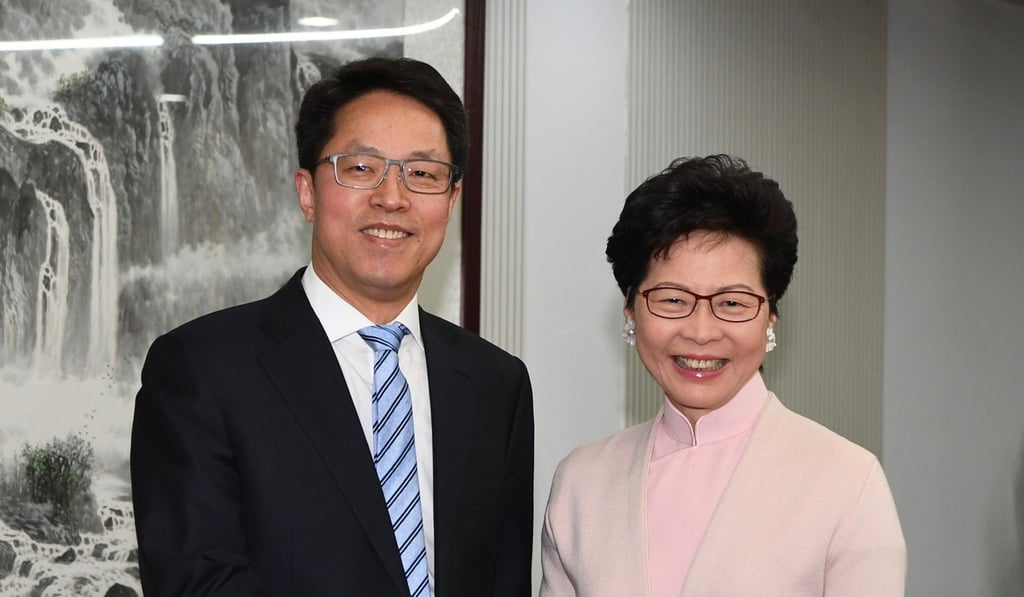Greater Bay Area integration the only way for Hong Kong to resolve its long-standing problems, says Beijing’s chief official on city’s affairs
- Zhang Xiaoming praises Carrie Lam’s government for proactive approach to other national initiatives, such as Belt and Road plan
- He calls chief executive courageous and responsible for banning separatist Hong Kong National Party

Beijing’s “Greater Bay Area” project to integrate Hong Kong with 10 neighbouring cities is the only way the former British colony can resolve its long-standing problems and deep-rooted conflicts, the central government’s top official on Hong Kong affairs said on Wednesday.
Giving his take on Premier Li Keqiang’s latest work report, Beijing’s Hong Kong and Macau Affairs Office director Zhang Xiaoming also praised Hong Kong Chief Executive Carrie Lam Cheng Yuet-ngor and her government for banning the pro-independence Hong Kong National Party (HKNP).

“In the past year, Lam has led her government in being courageous, responsible, and proactive. In accordance with the law, it banned the HKNP, and stopped pro-independence activists from standing in Legislative Council … by-elections,” he said in an article published on his office’s website on Wednesday.
Li pledged in his work report on Tuesday that Beijing would uphold its “one country, two systems” governing principle in Hong Kong and Macau and fully support the two cities’ leaders and governments. Li also said Hong Kong and Macau would develop and thrive with the mainland as they grasp the opportunities under the belt and road international trade strategy and the Greater Bay Area plan, which aims at turning 11 city economies into a financial and technology hub to rival Silicon Valley by 2035.